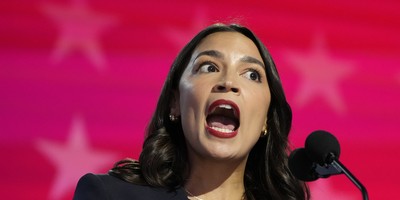Today, the Supreme Court hears a case about whether dentists and other professions should be allowed to use state licensing boards to engage in anti-competitive behavior that would be illegal if not done under the auspices of state governments. The case is North Carolina State Board of Dental Examiners v. FTC, and involves actions taken by that state’s dental board to prevent non-dentists from providing teeth-whitening services.
In the University of Pennsylvania Law Review, Cato Institute adjunct scholars David Hyman and Shirley Svorny explain:
A majority of the courts of appeals gives state licensing boards and similar entities considerable latitude to engage in anticompetitive conduct, even when that conduct would be clearly unlawful were it undertaken individually by the licensed providers that typically dominate these licensing boards…
[T]he North Carolina Board of Dental Examiners (N.C. Board) became concerned that non-dentists were providing teeth whitening services. In North Carolina, teeth-whitening was available from dentists, either in-office or in take-home form; as an over-the-counter product; and from non-dentists in salons, malls, and other locations. The version provided by dentists was more powerful and required fewer treatments, but was significantly more expensive and less convenient. In response to complaints by dentists that non-dentists were providing lower-cost teeth-whitening services, the N.C. Board sent dozens of stern letters to non-dentists, asserting that the recipients were engaged in the unlicensed practice of dentistry, ordering them to cease and desist, and, in some of the letters, raising the prospect of criminal sanctions if they did not do so. The N.C. Board also sent letters to mall owners and operators, urging them not to lease space to non-dentist providers of teeth whitening services.
Recommended
- The Supreme Court will decide whether the North Carolina dental board should be able to claim a “state action” exemption to federal laws against anti-competitive conduct. Hyman and Svorny argue they should not, noting that doctors, lawyers, and other professions have used government licensing to stamp out competition, to the detriment of consumers:
Other occupations provide no shortage of similar examples, whether it is states requiring hair braiders to obtain cosmetology licenses (even though the requisite training has absolutely nothing to do with hair braiding), laws prohibiting anyone other than licensed funeral directors from selling coffins, states prohibiting anyone other than veterinarians from “floating” horse teeth, or ethics rules prohibiting client poaching by music teachers.
“Antitrust has historically focused on private restraints on competition, but publicly imposed limitations can pose greater peril,” they write, “since they are likely to be both more effective and more durable.”
Hyman and Svorny make three further recommendations for the courts:
First, in reviewing the decisions of licensing boards, courts should presume that states were not actively supervising the boards, absent compelling evidence to the contrary. Second, defendant–licensing boards should be required to present persuasive evidence of actual harm that their proposed licensing restrictions or restraints will prevent and should be required to show that private market and non-regulatory forces (including brand names, private certification, credentialing, and liability) are insufficient to ensure that occupations maintain a requisite level of quality. Finally, we argue that legislators should take steps to roll back existing licensing regimes.
Hyman signed onto an amicus brief filed by antitrust scholars. (Here are two more amicus briefs filed by public-choice economists and the Cato Institute.) Svorny argues for the complete repeal of government licensing of medical professionals, and illustrates how the market for medical-malpractice liability insurance does more to promote health care quality than licensing.
(Cross-posted at Darwin’s Fool.)

























Join the conversation as a VIP Member